The Pacific Northwest Poetry SeriesLinda Bierds / General EditorThe Pacific Northwest Poetry Series2001 John HainesFor the Centurys End2002 Suzanne PaolaThe Lives of the Saints
The Lives of the Saints
 Suzanne Paola
Suzanne Paola The Lives of the Saints
The Lives of the Saints, the second volume in the PACIFIC NORTHWEST POETRY SERIES, is published with the generous support of CYNTHIA LOVELACE SEARS. Copyright 2002 by Suzanne Paola Designed by Audrey Meyer 06 05 04 03 5 4 3 2 1 First Edition 2002 All rights reserved. No portion of this publication may be reproduced or transmitted in any form or by any means, electronic or mechanical, including photocopying, recording, or any information storage or retrieval system, without permission in writing from the publisher. Library of Congress Cataloging-in-Publication Data Paola, Suzanne. The lives of the saints / Suzanne Paola. cm.(The Pacific Northwest poetry series) ISBN 0-295-98272-1 (cloth : alk. paper)ISBN 0-295-98273-x (pbk. : alk. paper) 1. paper) 1.
Christian saintsPoetry. 2. WomenPoetry. I. Title. Series. Series.
PS3566.A594 L49 2002 811'.54dc21 2002069579 This book is for St. Christopher But if I was born in sin and guilt was with me already when my mother conceived me, where, I ask you, Lord, where or when was I, your servant, ever innocent? St. Augustine But I want to seek out a means of going to heaven by a little way, a way that is very straight, very short, and totally new. We are living now in an age of inventions, and we no longer have to take the trouble of climbing stairs, for, in the homes of the rich, an elevator has replaced these very successfully. I wanted to find an elevator which would raise me to Jesus. St.
Thrse of Lisieux If they wanted to know about man, why not work on man? Deposition of Dr. Carl Heller
on the origins of the Human Radiation Experiments
Contents
Prologue
St. Theresa of Avila tells us we must find saints to be our companions, because we need the friendship of those who once had mortal bodies and now do not
not just the company of those of the angelic orders, who may not understand.
Saints meaning those-we-know-are-in-heaven. The ones who can plead our case. With the
beati, their not-quitesainted kin.
Fixed points in our restless stellar cartography. Like St. Thrse of Lisieux, the young nun who loved the holy face of Jesus and also chocolate clairs, who died of tuberculosis at twenty-four. Creator of the spiritual Little Way and unnoticed by her Sisters: poor at sweeping. St. Catherine, the illiterate medieval self-starver, self-scourger, who learned her letters as a young woman from her bridegroom Christ.
And lived to berate popes before dying from anorexia and bulimia. They were all strength and all nothingness. Invisible: slipping in and out: changing the rules. Like the blank smoke of industrialization. By-product of the machinery of the spirit. the ones who had offended him, whom he forced to accept his graces. the ones who had offended him, whom he forced to accept his graces.
The lives of the saints as absurd, evidence of a governing and exuberant caprice. Capable-of-intercession: search engines that stop where we point. The thirty-six righteous ones of the Jews, who keep humankind going: without them the whole armistice that is the world would collapse. St. Augustine said, There are three times, a present of past things, a present of present things, and a present of the future. He said, Otherwise, how do prophets see the future, if there is not yet a future to be seen? In the present of past things her spine opens to the bone, white as fossil.
In the present of past things her throat gives a blood-alms to the thin napkin. Thrse: I will return! I will return! My heaven will be spent on earth. Their lives a breaking-point, a whirligig of matter. The lives of the saints take place all around us, under us, so much of the earth they seethe in it like anything else humankind puts there. We find them in our white teeth and as dust mites in the sheets we use, allergen to our dreaming. In the three times in which we live, in pieces.
This book is written as a polyphony, a chorus spoken about saints and, perhaps occasionally, by them. to build friendships [perhaps] with those who have had a mortal body .. .
The Lives of the Saints
The Lives of the Saints
When I first learned about atoms in high school nothing seemed more ridiculous than life if thats all it was: tiny, disintegrating, empty, all-the-same. Dustdots streaming toward an even larger collapse. Everywhere. & my lubehaired dad crisping the
Tribune down to come to her. & my lubehaired dad crisping the
Tribune down to come to her.
He was something else totally, really just a bundle of nervous hoops. He knew my mother as small already, the TV blaring I love ya little cutie but the office is my duty as legions of husbands left their wives onscreen. What I saw kept showing me its rounding Ferris wheels of movement, its poor parts.  At Mary Star of the Sea High School, 5th period science class it got hard to believe in anything, seeing it all as the same at the root one or two dots difference, carbons diamond, or bound with other, almost identical atoms, its me. Then 7th period Religion we read about the lives of the saints, so it was like hearing them try to yank the absurdity to something else. Or maybe the saints knew it too, Catherine with her puslicking, her meals of vomiting & celery.
At Mary Star of the Sea High School, 5th period science class it got hard to believe in anything, seeing it all as the same at the root one or two dots difference, carbons diamond, or bound with other, almost identical atoms, its me. Then 7th period Religion we read about the lives of the saints, so it was like hearing them try to yank the absurdity to something else. Or maybe the saints knew it too, Catherine with her puslicking, her meals of vomiting & celery.
I loved those people & their comic gestures. Rose of Lima rubbing pepper on her skin, Jerome turning restlessly on his nails showed their indifference to the state of matter. They were the first atomic scientists. Francis parents cast him off, Roses too, saints blew up the world around them. Like they had to start that way, freed electrons, so the way in front of them could be clear.  Later I saw them all the time when my mother grew their look.
Later I saw them all the time when my mother grew their look.
I say grew. It emerged, a new life, from her face. The one where you smile & its real but the rest of your face does something else completely. Looks beyond the room, your eyes heavy with the weight of two existences. It seemed my mothers cancer hungered for her eyes. A soft round on the ovary, larger than the organ it consumed.
They took out everything, the first plushed bed of my babyhood. All gone, says my mother then tells me how she bled, like saffron threads (Indian cooking with Craig Claiborne, a phase of hers). She took to eating bacon & eggs & liver. Shes had her thyroid & appendix removed & tells me she feels like a bladder or balloon, a skin clung to a wind thats blowing her clean. After chemo I set her hair the way she likes it, the strands cytoxin didnt gobble up.  For a while I couldnt justify my love of sweets with all I knew of the world, it stung or spun, Catherine lived years on the Host, & I took a cake-decorating class and squeezed the icing bag straight into my mouth.
For a while I couldnt justify my love of sweets with all I knew of the world, it stung or spun, Catherine lived years on the Host, & I took a cake-decorating class and squeezed the icing bag straight into my mouth. 
Next page


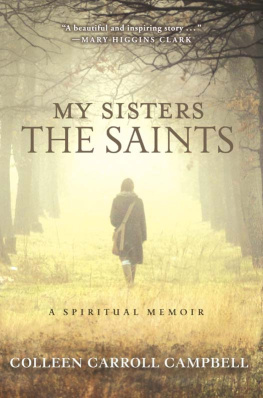
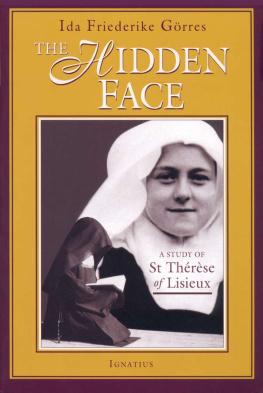
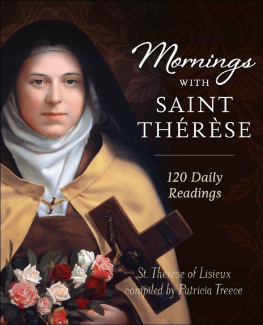
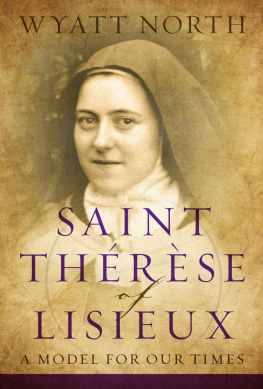
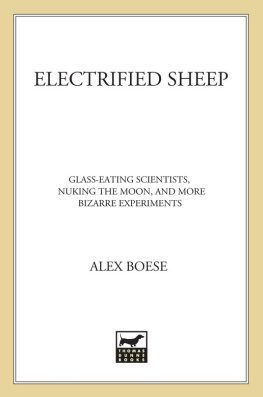
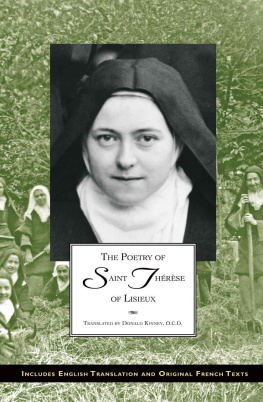
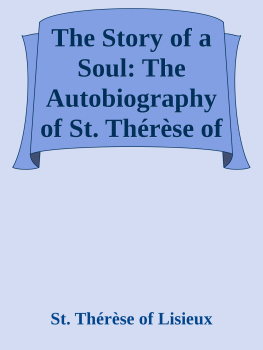
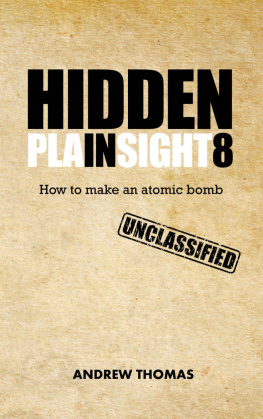
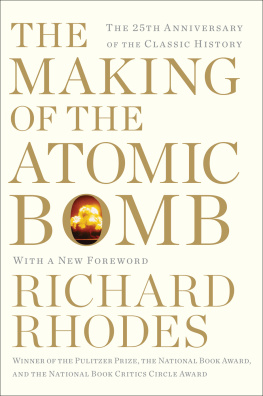

 The Lives of the Saints, the second volume in the PACIFIC NORTHWEST POETRY SERIES, is published with the generous support of CYNTHIA LOVELACE SEARS. Copyright 2002 by Suzanne Paola Designed by Audrey Meyer 06 05 04 03 5 4 3 2 1 First Edition 2002 All rights reserved. No portion of this publication may be reproduced or transmitted in any form or by any means, electronic or mechanical, including photocopying, recording, or any information storage or retrieval system, without permission in writing from the publisher. Library of Congress Cataloging-in-Publication Data Paola, Suzanne. The lives of the saints / Suzanne Paola. cm.(The Pacific Northwest poetry series) ISBN 0-295-98272-1 (cloth : alk. paper)ISBN 0-295-98273-x (pbk. : alk. paper) 1. paper) 1.
The Lives of the Saints, the second volume in the PACIFIC NORTHWEST POETRY SERIES, is published with the generous support of CYNTHIA LOVELACE SEARS. Copyright 2002 by Suzanne Paola Designed by Audrey Meyer 06 05 04 03 5 4 3 2 1 First Edition 2002 All rights reserved. No portion of this publication may be reproduced or transmitted in any form or by any means, electronic or mechanical, including photocopying, recording, or any information storage or retrieval system, without permission in writing from the publisher. Library of Congress Cataloging-in-Publication Data Paola, Suzanne. The lives of the saints / Suzanne Paola. cm.(The Pacific Northwest poetry series) ISBN 0-295-98272-1 (cloth : alk. paper)ISBN 0-295-98273-x (pbk. : alk. paper) 1. paper) 1.  At Mary Star of the Sea High School, 5th period science class it got hard to believe in anything, seeing it all as the same at the root one or two dots difference, carbons diamond, or bound with other, almost identical atoms, its me. Then 7th period Religion we read about the lives of the saints, so it was like hearing them try to yank the absurdity to something else. Or maybe the saints knew it too, Catherine with her puslicking, her meals of vomiting & celery.
At Mary Star of the Sea High School, 5th period science class it got hard to believe in anything, seeing it all as the same at the root one or two dots difference, carbons diamond, or bound with other, almost identical atoms, its me. Then 7th period Religion we read about the lives of the saints, so it was like hearing them try to yank the absurdity to something else. Or maybe the saints knew it too, Catherine with her puslicking, her meals of vomiting & celery.